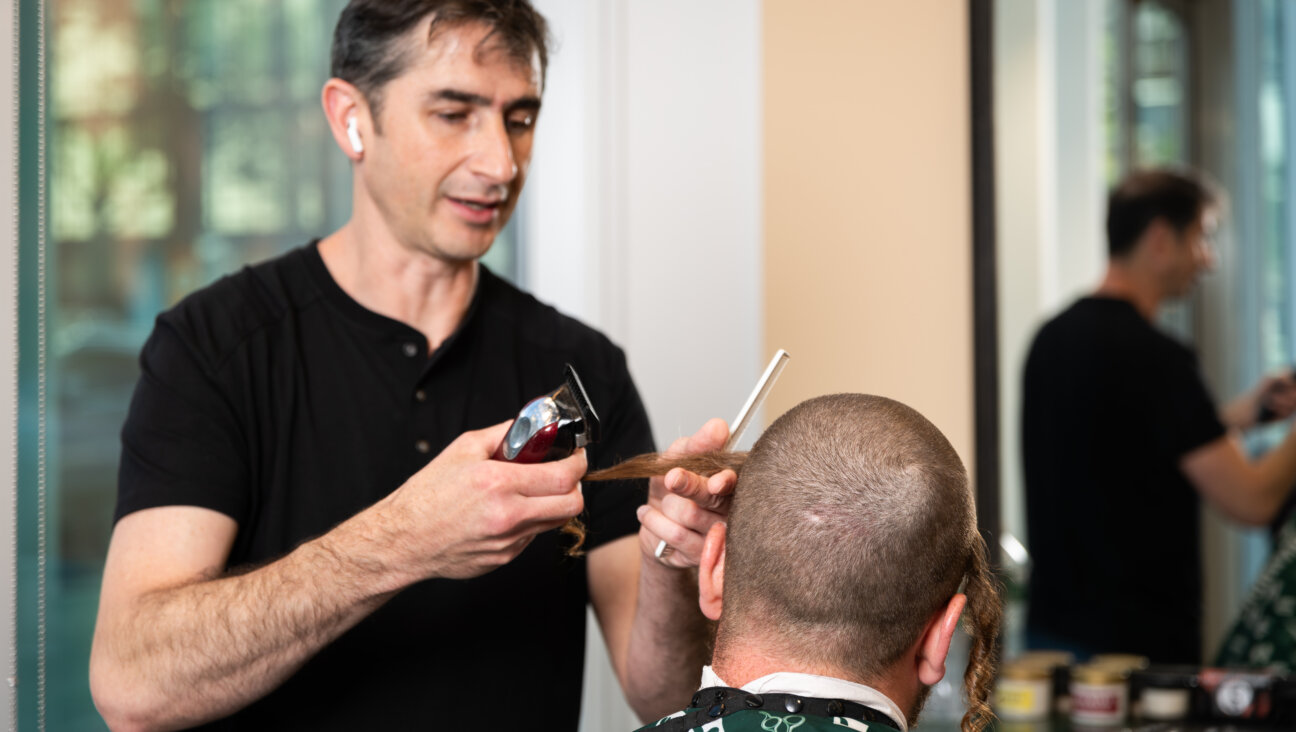Theater J’s Ari Roth Knew Days Were Numbered After Feuds Over Israel

Graphic by Angelie Zaslavsky
The break-up was on the horizon, but playwright Ari Roth didn’t expect it to happen quite so suddenly. On Thursday, Roth, the long-time artistic director of Theater J in Washington DC was fired — or he resigned, depending on who you ask.
A press release sent to the Forward on Thursday evening by Theater J, which is a program of the DC Jewish Community Center, characterized Roth’s departure as “stepping down to pursue a new series of endeavors.” Roth, however, told the Forward: “It was pretty punitive,” adding that the timing and method were a surprise.
Both sides confirm that the relationship between the theater and the DCJCC has recently been rocky. “DCJCC and Ari Roth have been moving down a path of somewhat divergent philosophical perspectives,” is how Carole Zawatsky, the chief executive officer of the DC Jewish Community Center, put it. “As of late spring, we were looking for a way to stop fighting,” said Roth.
During Roth’s 18-year-tenure, the theater has been in the spotlight of the Jewish (theater) world several times. Some plays that were staged evoked strong criticism from some who argued that they were hostile towards the state of Israel, even leading to the formation of Citizens Opposed to Propaganda Masquerading as Art, a group that aims to dissuade donors from contributing to the DCJCC and the Jewish Federation of Greater Washington.
But then came an article published on November 25 by the Forward’s Nathan Guttman. Based on leaked, internal documents, Guttman reported on a decision by the JCC to cancel its annual theatrical festival, Voices From a Changing Middle East. The story included a written statement by Roth, in which he criticized a headline of the article that was later changed: “Theater J has not moved to cancel anything. The DCJCC has made an executive decision and informed me and our Theater J Council of such. I’m committed to the future of the Voices From a Changing Middle East Festival and would never move to cancel such an acclaimed, important signature initiative.”
The DCJCC, said Roth, didn’t appreciate that he had spoken out without consulting the communications officer. “Like any institution, the DCJCC has a communications protocol,” Zawatsky told the Forward. “Ari has made choices to work outside of the bounds of that protocol.”
The DCJCC and Roth had been in conversations for several months to find a way for Roth to focus on the annual Voices festival and other projects related to the Middle East, and had considered several proposals, including running the Voices festival as a separate entity and keeping Roth as a part-time artistic consultant, according to Roth. “I was hoping we could reach a compromise,” said Roth. Roth’s position would likely change in one way or another — and then, said Zawatsky, it was the DCJCC that “chose the timing.”
Several recent productions at the Theater J — including those at the Voices festival — have brought the DCJCC under fire from some who considered the works hostile towards Israel. In 2013, “The Admission,” a play by Israeli Motti Lerner about the alleged massacre of Palestinian villagers by Israeli soldiers in 1948, had its world premiere at the Theatre J. Initially planned as a full production, it was later downgraded to a staged workshop — which coincided with protests by the local activist group COPMA.
The same group staged a similar protest to Theatre J’s 2011 production of “Return to Haifa” by Boaz Gaon, which tells the story of a Palestinian family returning to the home it left in 1948, which was then occupied by Israeli Jews. The 2009 production of Caryl Churchill’s “Seven Jewish Children” about the war in Gaza in 2008 endured similar criticism by the group.
Despite the sudden ending, Roth says he is thankful for the years of what he called “interesting creative tension,” and plans to start his own theater group as soon as next fall. According to the Washington Post, the Voices festival will likely be part of the venture.




















